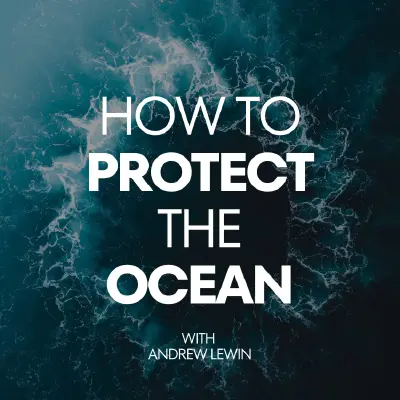Rebuilding fisheries requires information on fisheries stock assessments for each species. Collecting that data is not easy; it takes time and money to do. The Canadian Government is mandated to gather information on the 200 commercially fished species, but it's lacking. Not to worry. Ocean Canada has taken on the burden to collect and presenting the fisheries information in their Annual Fisheries Audit.
In this episode of the How to Protect the Ocean podcast, host Andrew Lewin interviews Rebecca Schijns, a fisheries scientist with Oceana Canada, to discuss the findings of the 8th Annual Fisheries Audit. The audit aims to assess the health of Canadian fish populations and the effectiveness of fisheries management.
Key Highlights from the Audit:Current Status of Fish Populations:
Just over one-third (35%) of Canadian fish populations are assessed as healthy, an improvement from less than a third in the previous year.
Approximately 34.5% of fish stocks are in an uncertain status, lacking defined benchmarks for sustainable fishing.
The remaining stocks are categorized as follows:
13% in the cautious zone
17% in the critically depleted zone
Importance of Audits:
Oceana Canada began conducting these audits in 2017 due to a lack of clear data on fishery health.
The audits compile publicly available government documents, stock assessments, and management plans to create a comprehensive overview of fishery status.
Positive Developments:
High-quality rebuilding plans have been developed for several critically depleted stocks, including mackerel and cod, with timelines for recovery.
Increased consideration of climate change impacts in scientific advice and management decisions.
A slight decrease in the number of stocks in the critical zone, indicating progress in stock assessments.
Concerns and Challenges:
Despite the positive developments, there is a slow rollout of the Fisheries Act regulations, with only 30 out of nearly 200 fish stocks currently covered.
The reopening of the cod fishery and increased quotas for capelin have raised concerns about overfishing, especially given the stocks' precarious status.
The episode highlights the need for stronger leadership and accountability in fisheries management to ensure sustainable practices.
Call to Action:
Rebecca emphasizes the importance of citizen engagement in fisheries management, encouraging listeners to stay informed and advocate for sustainable practices.
Oceana Canada aims to depoliticize fisheries management by promoting strong laws and regulations that can withstand political changes.
The episode concludes with a hopeful outlook for the future of Canadian fisheries, stressing the importance of collaboration and informed decision-making to achieve sustainable fish populations.
Link to the Report: https://oceana.ca/en/reports/fishery-audit-2024/
---------------------------------------------------------------------------------------------- Follow a career in conservation: https://www.conservation-careers.com/online-training/ Use the code SUFB to get 33% off courses and the careers program. Do you want to join my Ocean Community? Sign Up for Updates on the process: www.speakupforblue.com/oceanapp Sign up for our Newsletter: http://www.speakupforblue.com/newsletter Facebook Group: https://bit.ly/3NmYvsIConnect with Speak Up For Blue: Website: https://bit.ly/3fOF3Wf Instagram: https://bit.ly/3rIaJSG TikTok: https://www.tiktok.com/@speakupforblue Twitter: https://bit.ly/3rHZxpc YouTube: www.speakupforblue.com/youtube
